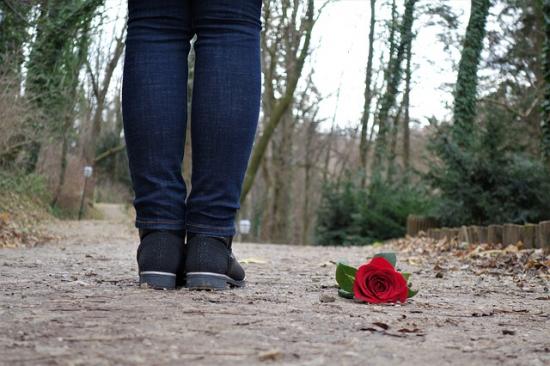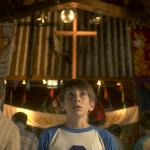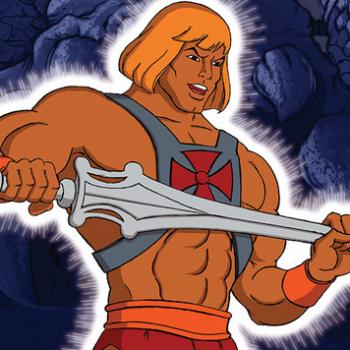
Last week, a young man walked into his Texas high school armed with a gun, killing 10 of his classmates and wounding 13 others. It’s alleged that one of his victims was a young woman who rejected his advances. In April, Alex Minassian drove his car into a Toronto crowd, killing 10. Shortly before his attack, Minassian posted on Facebook ‘The Incel Rebellion Has Already Begun” and applauded another angry young man who killed six in California in 2014, leaving behind a manifesto raging about women and his own “involuntary celibacy. “
There is an epidemic of young, mostly white straight men taking to the internet daily to vent their rage about the women who spurned them and a culture that has left them sexless and alone. They write venomous screeds about the female leads of “Star Wars” and other films. They attack women on social media and eviscerate a society that they believe devalues them. Some turn to violence, others skulk to Twitter and Reddit to commiserate with similarly angry young men.
The most extreme of these identify as Incels, short for “Involuntarily Celibate.” They are often depressed over their inability to get a date or have sexual attention reciprocated. For some, the internet is a place where to gather in and vent their frustrations. A growing contingent, however, go beyond seeking solidarity. They let their anger and frustration bubble into a toxic brew directed toward a culture designed to never let them have the sex they think they are entitled to but cannot achieve because they see themselves as genetically lacking (Beta). They believe a revolution is coming, and some — such as Minassian and 2014 shooter Elliot Rodger — turn to violence. As Zack Beaucahamp wrote for Vox:
“It’s this embrace of helplessness, of their certainty of their own sexual doom, that makes the more extreme incel communities so dangerous. Instead of trying to support each other and work through their issues as a group, the incels in certain communities allow their resentments to curdle. They see the world through the lens of entitlement: They are owed sex but cannot have it because women are shallow. This manifests in a deep and profound hatred for women as a group, which shows up on a very brief scan of some of the more extreme incel communities. . . . But it’s not just individual women that these radical incels hate — it’s society writ large, a society that allows their perceived sexual oppression to go on. The sexual revolution, in particular, comes in for hate: They believe women being freed to make their own sexual choices, rather than being married off to men and made subordinate, is the reason women can choose to sleep with attractive men and ignore the so-called incels.”
I have not seen the Santa Fe High School shooter referred to as an Incel, but the allegations of being spurned suggest a similar anger. Young, white straight males today are angry and frustrated, and much of it comes down to the attention from women that they believe they are not getting, and a protracted single age they feel they don’t deserved. They believe they are “friend-zoned,” and they turn to social media seeking camaraderie that too often only feeds their anger and isolation.
Some mock these men. Some are sickened and appalled. But me? I’m sad. I’ve been in their shoes and, but for the grace of God, I would be one of them. And I want to tell them: I hear you, I understand you, and you’re wasting the best years of your life in frustration and anger.
Me, the ‘Friend-zoned’
I’m 38. I have a wife and two young kids. It’s been a long time since I’ve been celibate. But not that long.
I met my wife three weeks before I turned 30. Before that, there was a long stretch where I was single, lonely and bitter.
My grandparents and parents all married in their early 20s. Both of my siblings married their high school sweethearts. I grew up in an evangelical culture where it wasn’t unheard of to be engaged before you went off to college, with kids before your 25th birthday. I was constantly surrounded by friends who had steady girlfriends or weekend conquests. The older I got, the more weekends I found myself alone in my apartment (or back at my parents’ house) because all of my friends were out with their spouses or significant others.
It sucked. I did not have great luck with the opposite sex. Overweight, suffering from acne and socially anxious, I was terrified of women. I couldn’t talk to a girl without seizing up in fear and babbling. I was too aware how out of shape and uncoordinated I was, especially compared to other men my age. How could I compete? I relied on striking up conversations with women in chatrooms and on Instant Messenger because, as a writer, I could at least pretend to be cooler and more confident than I was. But whenever I met one of these online connections in the flesh, I reverted to my shy self, and second dates were out of the question.
In evangelical culture, family is everything. The main goal for many is to get married and raise kids. The church has a horrible history of treating singles as pre-adults, offering platitudes such as “if you desire a mate, God will give you one” and describing marriage as the moment you become a full person. It also doesn’t help that they constantly rave about how great sex is — once you are married and allowed to have it. For someone who couldn’t get a date, let alone a first kiss, that was not helpful.
When marriage and sex are ultimate goals, every relationship with the opposite sex is colored by how it can help you attain this idol. Women are not seen as friends or sisters in Christ, but as potential mates. Every friendship has to bear the weight of the question “Is she the one?” When a girl says she just prefers to be your friend, it feels like a stinging rebuke: What you hear is that she’d rather be alone than to consider that you’re the one God has sent to meet her needs. Every relationship that doesn’t pan out obstructs what you believe is God’s plan for your life. And as you get older and more of your friends are talking about the greatness of sex, frustration and temptation grow stronger, and it’s easy to cling to depression, anxiety and anger.
I handled it badly. Had I known of Incels back then, I’m afraid I would have identified as one. I resented any friends who fell into a relationship. I was convinced that I was in love with all of my female friends, and when they rejected me, I destroyed those friendships and erected walls of anger and aloofness. I turned to pornography to get through lonely nights. When I was in relationships that didn’t pan out, I responded the only way I knew: with vitriol and poison. After one relationship I had high hopes for didn’t work, I wrote a seething blog entry that I posted for all — including the one who spurned me — to see. I wasn’t an immature 16 year old; I was an immature twentysomething.
Look outside yourself
I marinated in angst and loneliness through most of my 20s. I tried to switch churches hoping I could find potential dates at a new one. I tried every online dating site but every failure only fed my cynicism. I was convinced women hated me and that I was part of a culture where I would constantly be runner-up to the good-looking, confident and financially successful.
When I was 28, I entered into my first real relationship. I had my first kiss. But more importantly, I had to initiate my first breakup. I was dating a nice girl, but the longer we were together, the more I realized we weren’t right for each other. I was more interested in being in a relationship, not being in this relationship. I ended it and, for the first time, I got a glimpse of what happened on the other side of the breakup.
I realized that the girls who had broken up with more or rejected me weren’t monsters. Sometimes things just didn’t work out. It was often just as hard to be the one letting someone down as it was to be let down. It was eye-opening to me because it was a tangible reminder that in a relationship there are two people with feelings, hopes and dreams. My anger and depression limited people to roles that said their only reason for existence was to make me happy. To reject me, then, meant that they were bad people, and to break up with me meant they were evil. What I saw as an unfair world was just one I was viewing through a narcissistic lens that said life was about my happiness and sexual fulfillment. Women were a means to an end.
Nowhere more was that apparent than in my obsession with being “friend-zoned.” Instead of being grateful for wonderful friends (who, I must add, showed grace and love to me when I acted like a jackass), I put them in a box that said the true purpose of their friendship was to give me fulfillment and happiness. As I’ve heard said elsewhere, I “girlfriend-zoned” them, not treating them with the same respect and love I had for my male friends, but seeing them through a view that narrowed that friendship’s potential. Today I mourn the loss of those friendships, which I neglected once they found significant others. I wish they knew or had strong friendships with myself and my wife and that those relationships hadn’t withered because I had no use for them when I saw my needs weren’t going to be met.
Don’t waste your single years
I look back on my single years with sadness because of how misguided I was. As a married man, I see how sex is not an entitlement but a gift between two people who love and trust each other intimately. I see the color and diversity friendships with those of the opposite sex can bring to your life, the new perspectives you are allowed to see that are so much richer when you don’t view everything through a prism of romance and sex. I mourn the immaturity of my twenty-something self, a kid who didn’t appreciate the relationships God did give him and who moaned about his loneliness nightly, not realizing that there were greater things in store.
But mostly, I regret the missed opportunities.
Because I was taught life didn’t begin until marriage, I treated my single years as a holding pattern or waiting room. I accomplished little. I didn’t commit much to career because I didn’t want to risk missing out on meeting “the one.” I didn’t get involved in church because I resented serving alongside married people. I wasted so much time in the evening with venting my rage or retreating to my addictions instead of growing in faith, writing the novel I wanted or serving my community.
To those currently hating their single years: Don’t waste this time. These are the years when your energy and creative potential are at their highest. Should you get married and have children in the future, your time to give back and take on creative endeavors will be limited. When you’re working a 40-plus hours a week, you’ll have less time to volunteer and follow your passions. Don’t waste exuberance, creativity and passion on rage and frustration. Create something positive. Care for others. Make a difference. This is the best time for it.
I do not want to downplay the loneliness and isolation you feel. Humans are made for community, and the online refuges you’re seeking prove how strong that pull is in you. Commit to making these online places positive, not areas to channel your frustration but to encourage each other and build friendships. Seek community outside these groups. I know it’s the last thing you want to hear, but befriend married people and couples; seeing the reality of the challenges of relationship will help you keep it from becoming an idol. Find a church that engages and encourages the single community. Find a writer’s group, improv class or book discussion group; communities that encourage your creativity, passion and uniqueness. There’s so much more to life than sex and romance; find groups that bring the color out in life.
Church: Are we listening?
I haven’t heard much about faith in the Incel community, but it would not surprise me to learn that many had grown up in the church, only to leave feeling neglected. That’s a shame. Wherever there is a community in pain, the church should offer love and friendship. Unfortunately, when it comes to the plight of singles, the church has often done a terrible job.
Too often, the church prizes what I’ve heard called “Family Values Christianity.” It sets marriage and parenting up on a pedestal, organizing church life around the family. While this is well-intentioned and the church should meet the needs of the family, it unfortunately also often isolates single folk. It treats them as not-yet-adults, people who have something missing without a spouse or children. And it often treats singles groups as dating groups, a community that exists only to pair up the people in the group instead of encouraging them to make the most of their single life. And, of course, the church’s approach to sex has often been misguided, something that is probably a whole other blog post.
But there are people out there angry and hurting. The church that believes it has hope and an answer to that pain is one that will reach out, welcome in the pained, and encourage them. Are our churches safe places not just for the happy singles but the miserable, lonely ones? Is it a safe place to voice our struggles with temptation, lust and anger? Will we welcome not only the singles who are ready to start a family but those so broken, lonely and afraid that they can’t say hello to someone? I hope so. Because the church has a responsibility to redeem the idea of relationship.













